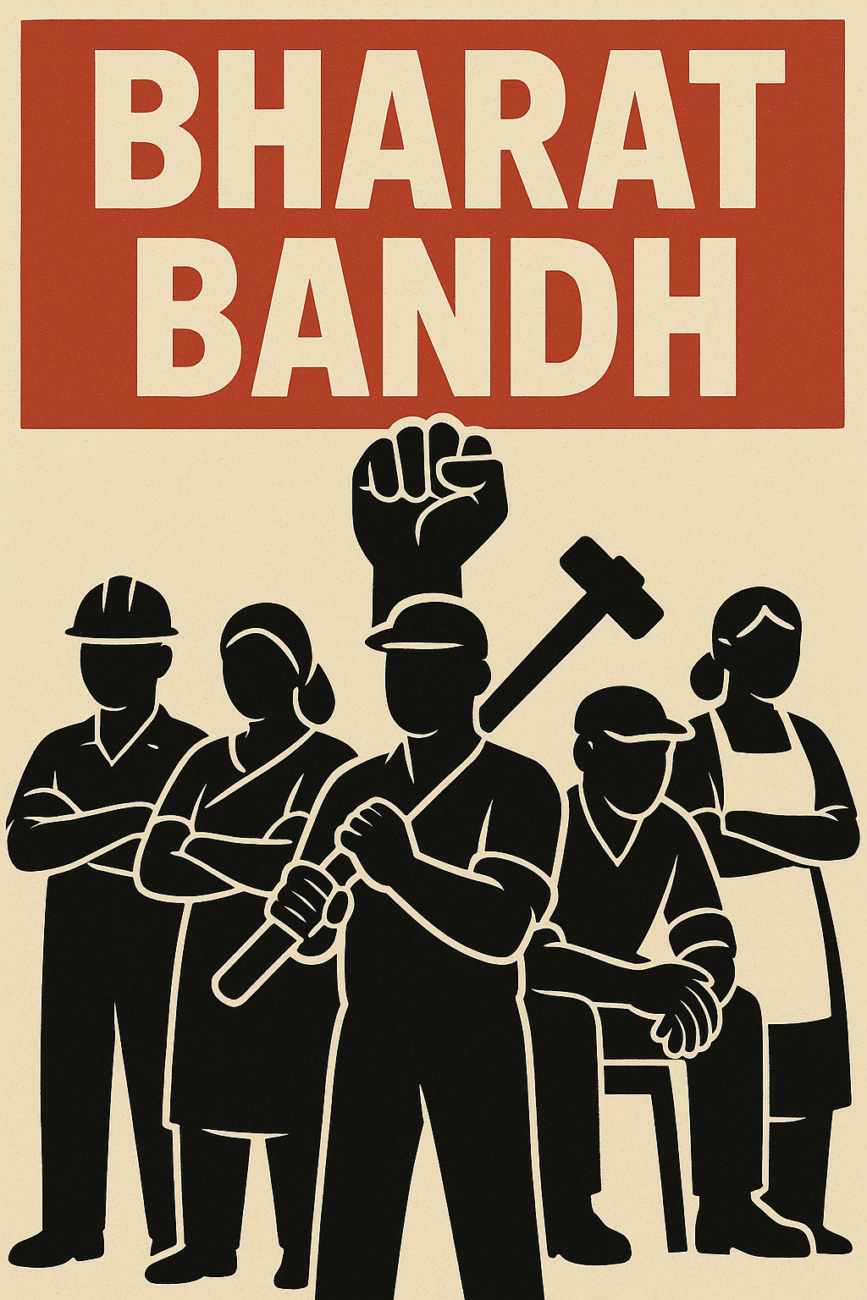Bharat Bandh on July 9: Nationwide Strike to Disrupt Services
A massive nationwide general strike—Bharat Bandh—is scheduled for Wednesday, July 9, with over 25 crore workers from various sectors expected to participate in what is being called one of the largest coordinated labour actions in recent years. The strike, spearheaded by major trade unions, aims to protest the central government’s labour policies, which workers say are anti-labour and pro-corporate.
The strike is expected to cause widespread disruption across the country, affecting key sectors such as banking, insurance, coal mining, postal services, highway construction, and state transport. In addition to formal sector workers, informal sector workers, farmers, and rural labourers are also expected to join the agitation, adding to the scale and scope of the protest.
Amarjeet Kaur, General Secretary of the All India Trade Union Congress (AITUC), told news agency PTI, “More than 25 crore workers are expected to take part in the strike. Farmers and rural workers will also join the protest across the country. This is the culmination of months of mobilisation.”
The strike is supported by a united front of 10 central trade unions and several independent federations, including Hind Mazdoor Sabha, Centre of Indian Trade Unions (CITU), and Indian National Trade Union Congress (INTUC). The Samyukta Kisan Morcha and other farmer organisations have also pledged their support, signaling joint action from both industrial and agrarian sections of society.
The core of the protest is a 17-point charter of demands submitted to the Union Labour Ministry last year. Key demands include withdrawal of the four labour codes, halting the privatisation of public sector units (PSUs), a rollback of policies promoting contractualisation and outsourcing, and concrete steps to ensure job security, social protection, and fair wages for all workers.
Union leaders accuse the government of ignoring these demands and allege a systematic dismantling of labour rights. “The government has not convened the Indian Labour Conference in over a decade,” said Harbhajan Singh Sidhu of the Hind Mazdoor Sabha. “This shows their complete apathy toward the concerns of workers.”
Among the most contentious issues are the four labour codes introduced by the government, which consolidate 29 existing labour laws. Unions argue these codes increase working hours, erode collective bargaining rights, undermine union activities, and shield employers from legal accountability.
In a joint statement, trade unions condemned what they describe as an aggressive push for privatisation and corporatisation of public services. “The government has abandoned the welfare state and is catering to the interests of domestic and foreign corporates. These labour codes are nothing but tools to cripple trade union activity and snatch away long-standing workers’ rights,” the statement read.
The Bharat Bandh is expected to severely affect public and financial services. Banks and insurance offices are likely to remain shut or operate with skeletal staff. Postal services, coal production, and industrial output in several regions could see a sharp decline. State-run transport systems may face partial or complete shutdowns in many areas due to employee participation in the strike.
Local authorities in various states are preparing for possible disruptions, with contingency plans being put in place. However, widespread inconvenience to the public is still expected, especially in urban and industrial centres.
This is not the first time such large-scale mobilisation has taken place. Similar Bharat Bandh actions were observed on November 26, 2020; March 28–29, 2022; and February 16, 2024, with massive participation from both organised and unorganised sectors.
With grievances unresolved and momentum building across states, July 9 could mark a critical moment in the country’s ongoing labour rights movement. As millions prepare to walk off the job, the message is clear: India’s working class is united in its demand for dignity, fairness, and justice in the workplace.








